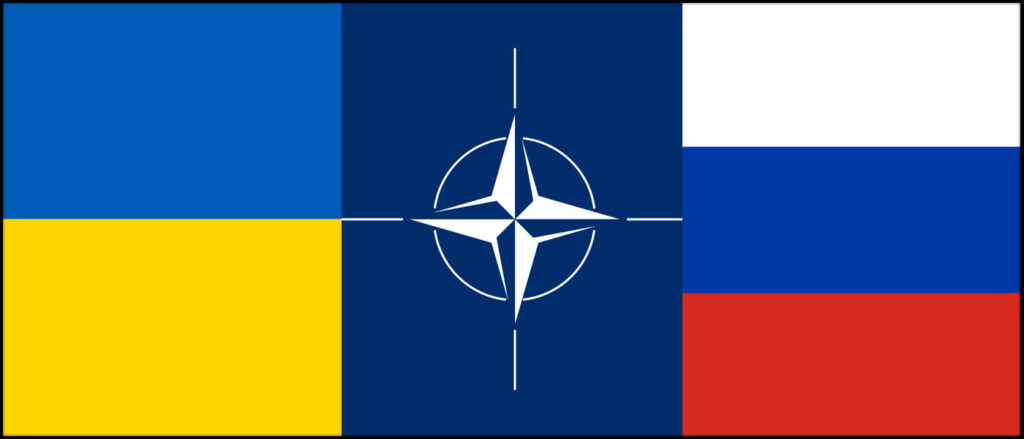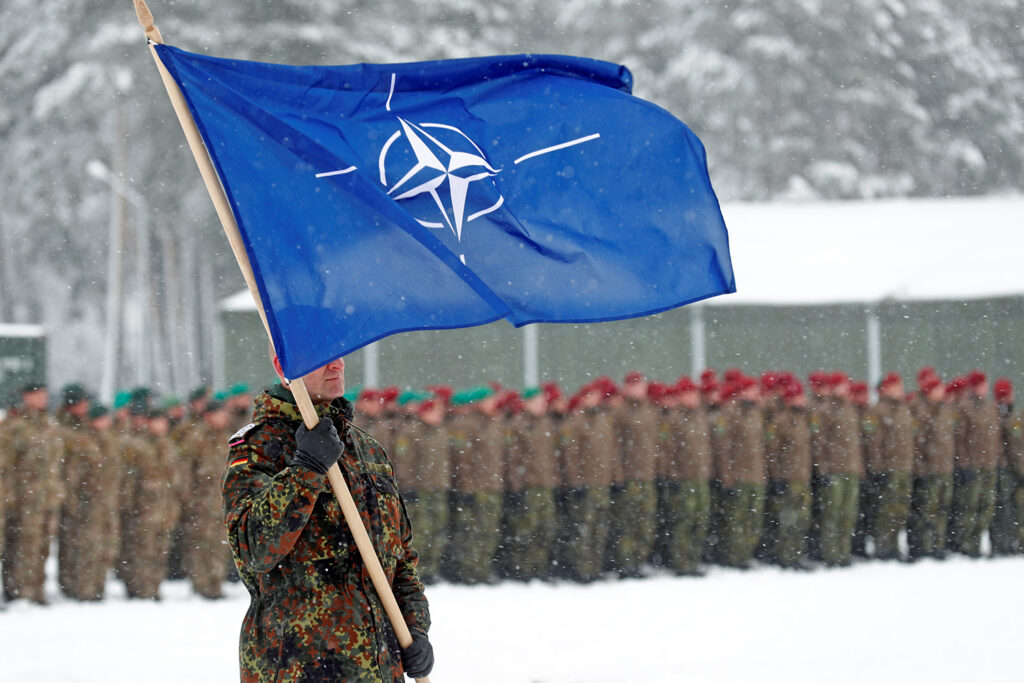Both Ukraine and Russia argue that there is an existential threat facing them.

Russia argues that the largest component of that existential threat for Russia emanates from NATO, and Ukraine’s long-planned-for membership of NATO.
Ukraine argues that her existential threat comes from the military force deployed by Russia.
Russia argues that she deployed this military force in order to protect Russia from the existential threat of NATO.
Ukraine argues that she has the sovereign right, as a free, independent nation, to join NATO without the interference of Russia.
So what we have in this conflict is death and destruction being fought over the issue of NATO.
I would argue… it’s just not worth it. Especially as there is, in all probability, no real chance of NATO membership for Ukraine. NATO would have to fracture in order for that to happen, and compromise itself beyond any utility.
There are other seemingly intractable issues in regard of this conflict but those are subsidiary, to some degree and the NATO issue is the most important. Solve the NATO issue and the fight stands a far greater chance of ending, than not. Had this NATO issue been solved earlier, or had not even arisen, there would have been a greater chance of avoiding conflict.
Is it worth all of the death and destruction just for the membership of a club?
Firstly, there may be an alternative within the NATO structure.
Specifically… Denmark, Norway and Iceland are NATO members but decided (at joining) to not allow permanent military bases during peacetime (in fact no allied military activity on their territories, at all) and… no nuclear warheads. Were this to be an option (or the only option) offered to Ukraine, Russia may acquiesce (arguably, but still, it might be possible).
Another option would be for Ukraine to forego NATO membership altogether but seek guarantees for her territorial integrity and defence issues elsewhere.
In this case, the best – and most obvious – alternative would be for Ukraine to form a formal defensive alliance with another (non-NATO) country, or more than one other country. In this case NATO would not be an issue. Russia may acquiesce, perhaps with less wrangling.
If that country were a NATO member than the alliance with Ukraine would have to be a stipulated exclusion to the NATO charter (articles 4/5) such that NATO itself would not become involved in the event of a war against Ukraine involving that particular NATO member.
If a such an alliance were entered into by Ukraine and (say) Poland (or whoever, under the exclusions mentioned above) then Russia may acquiesce (again, not without a serious wrangle but more possible than the first option, perhaps).
From a Russian perspective (irrespective of NATO involvement), those non-NATO alliances with Ukraine would have to guarantee the same (or similar) exclusionary effects as those mentioned above regarding Denmark etc, namely… no nukes, no bases, and no military training exercises on Ukrainian territory.
But that alliance (between Ukraine and whoever) would, crucially, guarantee the territorial integrity and independent sovereignty of Ukraine, alongside commitments to militarily intervene fully on behalf of Ukraine in the event of invasion or war. Russia may acquiesce, (following some wrangling).
When I say ‘Russia may acquiesce’ I mean that Russia must be involved in those negotiations (and may even become a guarantor signatory herself). This involvement would have to happen in order to overcome any issues of trust stemming from previous ‘bad-faith’ agreements (Minsk, for example) and ensure full transparency such that Russia could park the issue, sell the issue at home, and move on.
Bear in mind that NATO membership does not prevent individual member countries from participating in conflicts or military operations outside of NATO’s framework. If a NATO member decides to engage in a war or military intervention independently or as part of a different coalition, they have the freedom to do so. In such cases, NATO as an organization is not formally obligated to provide collective defence or support to that country.
The nuclear status of the potential ‘allied’ country might be an issue, both for Russia and for international treaties… so this solution might exclude nuclear powers becoming ‘allied’ with Ukraine. Up for discussion and negotiations, at least.

Should NATO insist on full membership for Ukraine with no exceptions (as those regarding Denmark etc), or deny any potential alliance with a NATO member country, or block any non-NATO country from forming an alliance with Ukraine… then that would be NATO insisting upon war as the only solution for Ukraine.
Further, if NATO took that ‘anti’ route… then we’d know that NATO never had the interests of Ukraine and peace at heart in the first place, and that from NATOs perspective, Ukraine’s membership of NATO was truly no more than a provocation for conflict with Russia and nothing whatsoever to do with preserving Ukraine’s ‘territorial integrity, sovereignty or independent right to choose her alliances.’
I’m not saying with any certainty that alternatives such as these WOULD solve the issues involved, or even that the process of discussion or negotiation would be easy… but I do think they offer viable alternatives.
Of course, with regard to the subsidiary issues in relation to Ukraine (Donbas etc), those would become significant as priorities and very difficult to solve… but at least there might be a chance, if the existential nature of the NATO threat were removed (from a Russian perspective of course).
